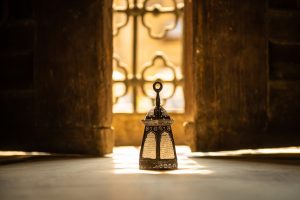Originally posted 2020-04-20 20:33:00.
Question:
With the approach of Ramadan, what is the ruling of Ramadan fasting during Coronavirus pandemic? Can Muslims pay zakah in advance to help Coronavirus- affected people? When Can Muslims pay zakat al-fitr during Coronavirus pandemic? How should Muslims offer Eid prayer during Coronavirus crisis?
Answer:
Answering your question, the Fiqh Council of North America (FCNA), states:
The Fiqh Council of North America (FCNA) is praying with the Muslim Community that we all reach Ramadan in safety and with health. The blessing that the answered prayers during Ramadan bring could not come at a more needed time with the challenges we are facing with Coronavirus (Covid-19).
Allah said: “O you who believe! Fasting is prescribed for you, as it was prescribed for those before you, that you may become righteous” (Al-Baqarah 2:183)
Prophet Muhammad (peace be upon him) said: “When Ramadan begins, the gates of Jannah are opened, the gates of Hell are closed, and the devils are chained” (Al-Bukhari and Muslim)
Paying Zakah before it is due
With the impact Covid-19 is having in our community (decrease in salary, job loss, increase in medical care, etc.) it is important to highlight the lawfulness of paying Zakah before it is due.
According to the majority of the jurists, Zakah can be paid in advance in the time of need. The Prophet said to Umar ibn al-Khattāb (may Allah be pleased with him) : “We have taken this year’s Zakah from Al-Abbas in the previous year.” (At-Tirmidhi), meaning that Al-Abbas, the uncle of the Prophet had already paid his zakah a year early.
The Fiqh Council encourages the members of the community to reach out with assistance to their brothers and sisters in need. One can calculate in advance the Zakah due for the next year and pay it now. At the end of next year, one has to calculate again and if the Zakah due is more than the amount paid, then one should pay the balance. If the Zakah paid was more than the due amount, then one can either consider it Sadaqah, or carry it forward as the Zakah for the following year.
Fasting During Ramadan in the Era of Covid-19
The obligation to fast Ramadan remains the same; medical issues are to be determined by trustworthy doctors that have an understanding of our way of fasting. Personal concerns or worries alone cannot be a reason for a person to abstain from fasting. Vulnerable persons should consult with their doctor before a decision is made. Fasting during Ramadan is one of the major Pillars of Islam and should not be taken lightly.
Praying Tarawih
Prophet Muhammad said: “Whosoever performs (optional tarawih) prayers at night during the month of Ramadan, with faith and in the hope of receiving Allah’s reward, will have his past sins forgiven.” (Muslim).
Prophet Muhammad prayed Tarawih with the congregation only for few nights. He did not gather people for daily Tarawih during Ramadan due to his concern that this prayer may not become mandatory for the Muslim Community and cause hardship to them.
The practice of praying Tarawih with a congregation was initiated during the time of Umar and was accepted by the Companions. It has continued to be an important part of the practices of the Muslim Community during the month of Ramadan.
If the current circumstances remain the same, the Fiqh Council encourages people to pray with their family in their homes. Those who do not know the Quran by heart, are allowed to hold it in hand and read from the Mus-haf in Tarawih prayer. (It is permissible to do it in sunnah or nafl prayers, not the obligatory prayers.) We do not see a religious basis for allowing people to pray Tarawih prayer by online connections to the local and any outside mosque.
Zakat Al-Fitr
The Fiqh Council recognizes the validity of the opinions of various schools of thought for the time of paying Zakat Al-Fitr. We encourage our community to do whatever they can to ease the suffering of those around them. So Zakat Al-Fitr may be paid anytime during the month of Ramadan to the time of the start of Salat Al-Eid.
Salat Al-Eid
The Fiqh Council cautions against taking the term “Sunnah” lightly. Salat Al-Eid is Sunnah according to the major Islamic schools of thought. It is Wajib (mandatory) according to the Hanafi school. However, keeping in mind the justifications given in the previous fatwas concerning public gatherings we advise people to do the following:
The theme of celebration should be obvious in our homes and heart (decorate and express joy)
The Imam’s of local Islamic Centers can give a live Khutbah that can be streamed at homes at a time that suits the local community’s needs.
People can pray 2 Rakahs in their homes together and share gifts.
The above opinion about Eid celebration is only valid if we remain under the threat of Covid-19 and under restrictions from our national and local authorities. If the situation changes, each Islamic Center should adjust the schedule to their normal practices.
Almighty Allah knows best.
Source: http://fiqhcouncil.org/


